Accused Fijian torturer sacked from Australian Army command
Fijian Colonel Penioni (Ben) Naliva has been removed as deputy commander of the Australian Army’s 7th Brigade following allegations he was involved in torturing detainees in Fiji.
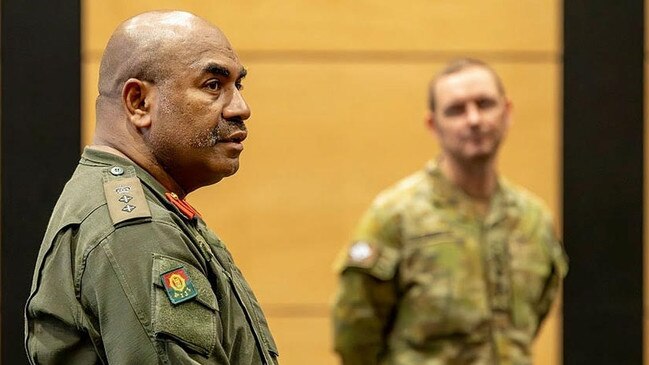
Fijian Colonel Penioni (Ben) Naliva has been removed from his post as deputy commander of the Australian Army’s 7th Brigade following allegations first revealed by The Australian earlier this year that he was involved in the torture of detainees in Fiji.
A one-time right-hand man to former Fiji coup leader and prime minister Frank Bainimarama, Colonel Naliva will now be posted to the Australian Defence College, where he will “contribute to Pacific-related research projects”.
Colonel Naliva is alleged to have been involved in several incidents of torture, including a violent beating of two Fijian politicians, with one victim claiming the soldier tried to force an M16 rifle barrel into his anus during an interrogation.
The revelation Colonel Naliva will remain with the Australian Defence Forces, albeit in a diminished role, has sparked further outrage from his alleged victims, who had wanted him expelled from the country or prosecuted.
After the torture allegations were revealed by The Australian more than two months ago, Chief of Defence Force Angus Campbell told a Senate estimates hearing he had ordered a review into the appointment of Colonel Naliva.
General Campbell admitted he was ultimately responsible for the decision to appoint Colonel Naliva as a commander of 3500 Australian soldiers and that the ADF had failed to conduct any independent checks on the soldier.
“Unfortunately … the process that we undertook was not as comprehensive as perhaps we all might have preferred,” he said.
However, General Campbell has now “decided that Colonel Naliva would not remain in this position”, an ADF spokesman told The Australian.
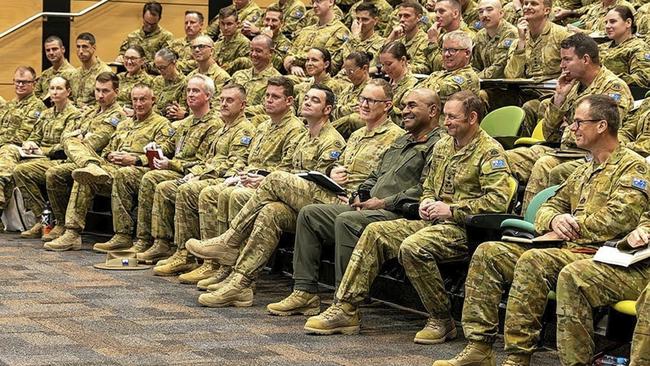
Defence was also reviewing the wider process to embed Pacific island commanders in ADF roles “to ensure this doesn’t happen in the future”.
“All seconded international military officers are subject to Australian laws and are required to adhere to the same Defence values and behaviours expected of ADF officers,” the spokesman said.
Colonel Naliva had “accepted an alternative posting to the Australian Defence College where he will contribute to Pacific-related research projects”, he said.
“Defence will continue to support Colonel Naliva while he remains posted to Australia.”
Colonel Naliva’s appointment came amid claims the Albanese government had turned a blind eye to his alleged human rights abuses as it sought to counter Chinese influence in the Pacific.
Colonel Naliva was awarded the prestigious position in the 7th Brigade despite allegations he was involved in the mistreatment of detainees, with former Fiji MP Sam Speight claiming the soldier tried to force an M16 rifle barrel into his anus during an interrogation.
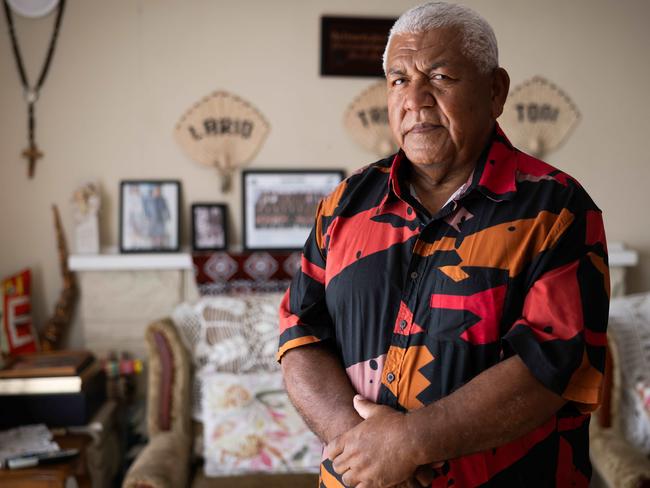
In another case, prominent youth activist Peter Waqavonovono said the soldier had been present when he was detained and tortured in 2006, and did nothing to stop it.
The UN Special Rapporteur also named then-major Naliva in a 2011 report to the Human Rights Council as being involved in the savage beating of Suva businessman Ben Padarath that left him unable to walk.
On Sunday Mr Padarath told The Australian he could not understand why the Australian government had given Colonel Naliva another job in the military instead of prosecuting him.
“How can the Australian government even consider keeping him in Australia?” he asked.
“I want an investigation into this man. Even if he is not in a teaching role at this college, it is not the kind of role model you want for young soldiers.”
“Is he going to be researching torture? Are they sending these soldiers to military school to help them improve torturing skills?”
Sources in Fiji have speculated to The Australian that Colonel Naliva’s appointment was approved by Prime Minister Sitiveni Rabuka because of concerns the commander – still reputedly a Bainimarama loyalist – was the military officer most able to stage a coup against his already unstable government.
After the scandal broke, Mr Rabuka said the “ball was in Australia’s court” about how to deal with the appointment.
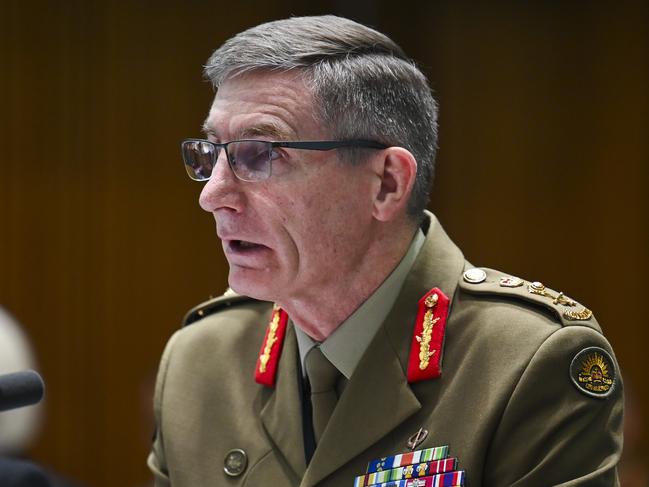
Under questioning by Greens senator David Shoebridge at an estimates hearing in February, General Campbell conceded Colonel Naliva had not been stood aside but was working remotely in “fairly stressful circumstances”.
Senator Shoebridge responded: “It’s no doubt stressful when there’s active discussion about your past history as a torturer.”
Senators were told Australian taxpayers were supporting Colonel Naliva with housing and allowances to lift his Fijian officer’s pay to an equivalent ADF level.
The debacle exposed a major gap in Australia’s vetting of soldiers from foreign forces, with perfunctory checks entirely reliant on assurances provided by the country of origin.
Defence official Susan Bodell said the department’s checks on Colonel Naliva consisted of an inquiry to the Fijian government, which recommended his appointment in the first place.
“We got a letter from the government of Fiji indicating that the individual concerned had complied with Fijian police checks and national security checks,” she said.
General Campbell said he had not been aware of any allegations against the Fijian officer, and the Fijian commander deserved the presumption of innocence.
“It remains an allegation that needs to be investigated by a relevant authority,” he said.
A spokesman told The Australian last week that Defence had “reviewed and strengthened the process for future selection and approval of embedded international officers within the ADF”.
Colonel Naliva was the first appointment under the program to embed Fijian, Tongan and Papua New Guinean commanders in senior ADF roles.
Australia committed to expand its defence and security co-operation with Fiji under the nations’ Vuvale Partnership agreement signed last October, with increasing co-deployments between the ADF and the Republic of Fiji Military Forces. A senior government source said in March that Defence Minister Richard Marles had a strong personal interest in the program and wanted “a Fijian colonel in that position forever”.


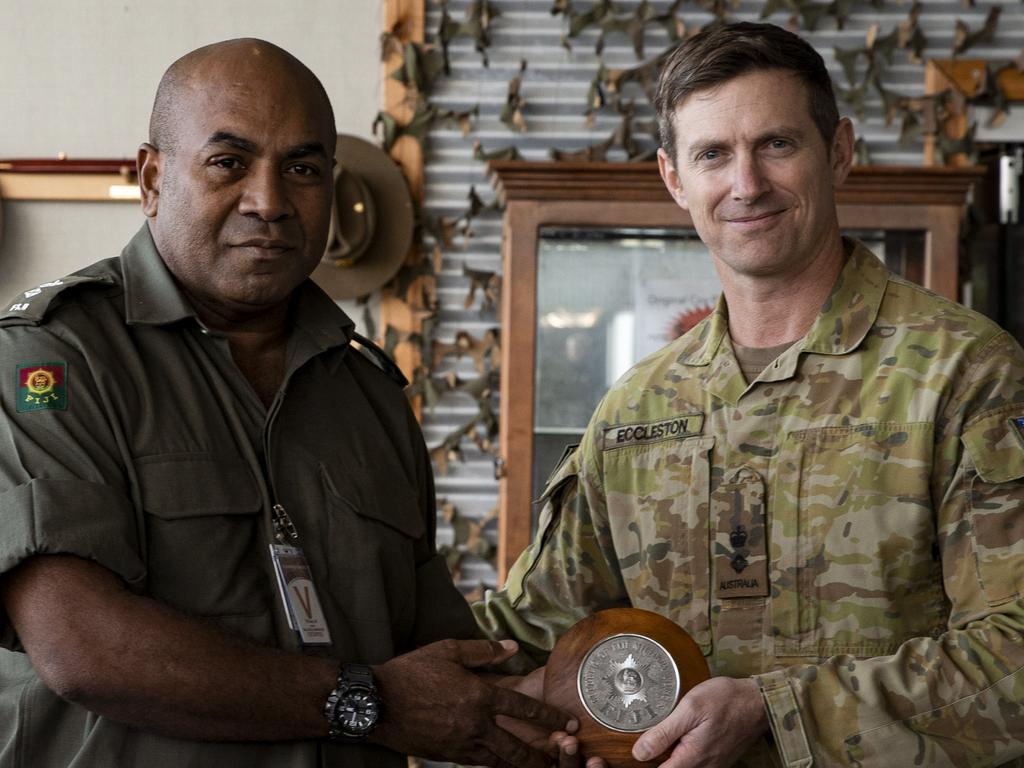



To join the conversation, please log in. Don't have an account? Register
Join the conversation, you are commenting as Logout